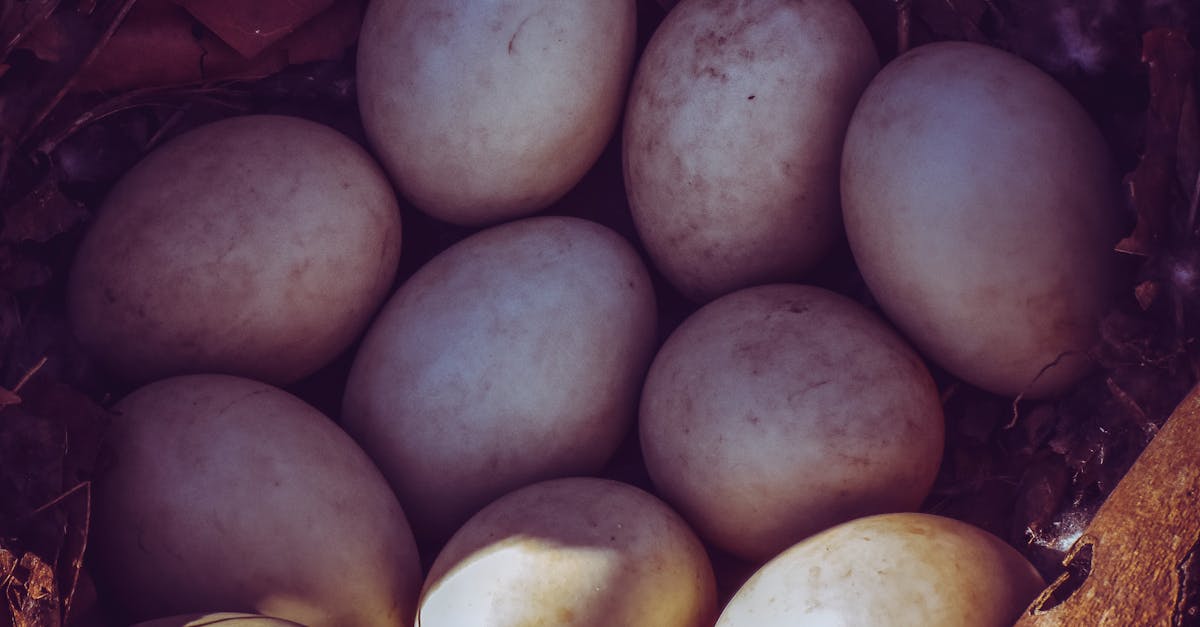# 10 Fascinating Facts About How Long Bird Eggs Take to Hatch
Understanding the incubation period of bird eggs is an essential aspect of birdwatching, ornithology, and wildlife conservation. The time it takes for bird eggs to hatch can vary significantly between species, influenced by factors such as the type of bird, environmental conditions, and the specific characteristics of the eggs. In this article, we will explore various bird species and their respective hatching times, providing insights into the fascinating world of avian reproduction.
| Bird Species | Incubation Period (Days) |
|---|---|
| American Robin | 12-14 |
| Common Sparrow | 10-14 |
| Emperor Penguin | 64-67 |
| Blue Jay | 16-18 |
| Red-tailed Hawk | 28-35 |
| Wood Duck | 28-35 |
| Great Horned Owl | 30-37 |
American Robin
The American Robin is one of the most recognizable birds in North America. Its eggs typically hatch within 12 to 14 days after the female lays them. The female incubates the eggs, and both parents are involved in feeding the chicks once they hatch. The quick hatching time allows robins to take advantage of the spring season when food is abundant.

Common Sparrow
Common Sparrows have an incubation period ranging from 10 to 14 days. These small birds are known for their adaptability to urban environments. The relatively short incubation time allows them to reproduce quickly, which is essential for their survival in fluctuating habitats.

Emperor Penguin
In stark contrast to the smaller birds, the Emperor Penguin has one of the longest incubation periods among birds, taking between 64 to 67 days. The male Emperor Penguin is responsible for incubating the egg, keeping it warm on his feet under a flap of skin. This extraordinary commitment is vital for the survival of the chick in the harsh Antarctic climate.

Blue Jay
Blue Jays, known for their striking blue plumage and intelligence, have an incubation period of 16 to 18 days. The female Blue Jay typically lays a clutch of 3 to 6 eggs, and both parents participate in raising the young, showcasing their strong family bonds.

Red-tailed Hawk
The Red-tailed Hawk, a large bird of prey, has a longer incubation period of 28 to 35 days. The female lays 1 to 5 eggs, and both parents are involved in protecting the nest and feeding the chicks once they hatch. Their nesting habits are often seen in trees, where they can keep a watchful eye on their surroundings.

Wood Duck
Wood Ducks also take about 28 to 35 days to incubate their eggs. These unique ducks often nest in tree cavities, which provides safety from predators. After hatching, the ducklings are precocial, meaning they can walk and swim shortly after emerging from the egg, a survival adaptation that is crucial in their natural habitat.

Great Horned Owl
The Great Horned Owl has an incubation period that lasts from 30 to 37 days. This owl species is known for its distinctive tufts and powerful presence. The female typically lays 1 to 5 eggs, and after hatching, the young are dependent on their parents for food and protection for several weeks before they fledge.

FAQ
How long do bird eggs typically take to hatch?
The incubation period for bird eggs can vary widely depending on the species. Most small birds have incubation periods ranging from 10 to 20 days, while larger birds, like the Emperor Penguin, may take up to 67 days.
Do both parents incubate the eggs?
In many bird species, especially among songbirds, the female typically does most of the incubation, while the male provides food and protection. However, some species, like the Blue Jay and Red-tailed Hawk, involve both parents in the incubation and care of the young.
What factors affect the incubation period?
Several factors can influence the incubation period, including temperature, humidity, and the specific conditions of the nest. Environmental factors such as predators and food availability can also play a significant role in the timing of hatching.
Why is the incubation period important for birds?
The incubation period is crucial for the development of the embryo inside the egg. A proper incubation duration ensures that the chicks develop fully and are ready to survive outside the egg. It also plays a role in the timing of the hatching with respect to seasonal food availability.
Where can I find more information about bird incubation periods?
For more detailed information, you can refer to trusted resources such as the [U.S. Fish and Wildlife Service](https://www.fws.gov/) and the [Cornell Lab of Ornithology](https://www.birds.cornell.edu/home/).
References:
– [U.S. Fish and Wildlife Service](https://www.fws.gov/)
– [Cornell Lab of Ornithology](https://www.birds.cornell.edu/home/)
This comprehensive overview of bird egg incubation periods not only highlights the fascinating diversity among bird species but also underscores the intricate relationship between avian life cycles and their environments. Understanding these factors can enhance your appreciation for the natural world and the remarkable adaptations of birds.
